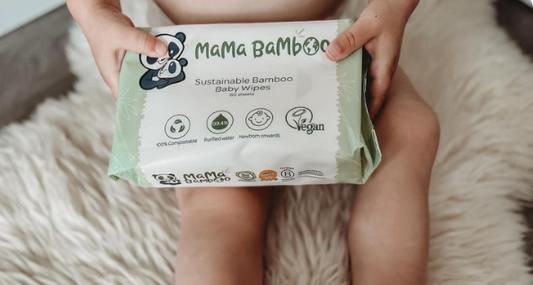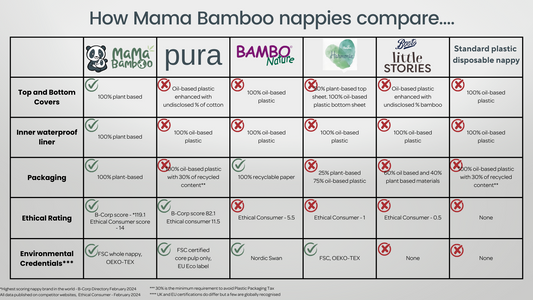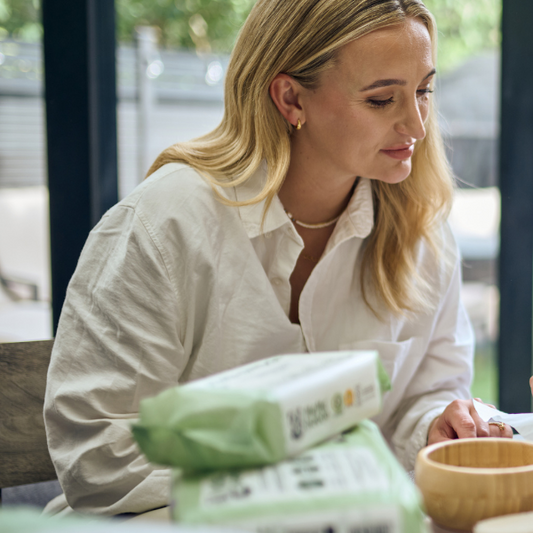Latest Posts
Earth Day 22nd April 2024
Mama Bamboo survey demonstrates lack of awareness around plastic nappy waste. Survey shows how few people know the scale of the UK’s nappy waste problem.
Earth Day 22nd April 2024
Mama Bamboo survey demonstrates lack of awareness around plastic nappy waste. Survey shows how few people know the scale of the UK’s nappy waste problem.

Caring for Your Little Ones: The Best Practices...
When it comes to caring for our little ones, as parents we want to ensure that we are using the best products possible. Baby wipes are a staple in every...
Caring for Your Little Ones: The Best Practices...
When it comes to caring for our little ones, as parents we want to ensure that we are using the best products possible. Baby wipes are a staple in every...

The new baby gift guide
Know someone having a baby soon, and not sure what to gift them? While you might be tempted to gift a cuddly toy or cute outfit, there are some things...
The new baby gift guide
Know someone having a baby soon, and not sure what to gift them? While you might be tempted to gift a cuddly toy or cute outfit, there are some things...

Top 100 B-Corp for Land and Wildlife Conservation
Thanks to Lucy Brown at B Corp UK — for her spotlight on Mama Bamboo for this month's B-Corp Impact Business Model case study.... 🌿🦁 LAND/WILDLIFE CONSERVATION IBM 🦒🌳 "Currently, only 101 B Corps...
Top 100 B-Corp for Land and Wildlife Conservation
Thanks to Lucy Brown at B Corp UK — for her spotlight on Mama Bamboo for this month's B-Corp Impact Business Model case study.... 🌿🦁 LAND/WILDLIFE CONSERVATION IBM 🦒🌳 "Currently, only 101 B Corps...

What is an 'eco' nappy? And how do they compare?
What makes a Mama Bamboo nappy an "eco-nappy" and how they differ to standard plastic versions and to other eco-brands?
What is an 'eco' nappy? And how do they compare?
What makes a Mama Bamboo nappy an "eco-nappy" and how they differ to standard plastic versions and to other eco-brands?

Turning nappies into flower pots!
ARN Nappy Recyclers confirm that biobased nappies are the best option for the future circular economy.
Turning nappies into flower pots!
ARN Nappy Recyclers confirm that biobased nappies are the best option for the future circular economy.

My Baba, My Mind and Me
What are baby blues? What is Post-natal depression? Where to get support and help.
My Baba, My Mind and Me
What are baby blues? What is Post-natal depression? Where to get support and help.

New Year, New You & Boo
Our top tips to creating a sustainable healthy lifestyle for your family
New Year, New You & Boo
Our top tips to creating a sustainable healthy lifestyle for your family

Tiffany Watson's top tips for sustainable paren...
Find out how Tiffany tries to live and parent more sustainably and read about some of her recommended products
Tiffany Watson's top tips for sustainable paren...
Find out how Tiffany tries to live and parent more sustainably and read about some of her recommended products

Making a difference with 'Give another mother'
Julie from the Ickle Pickles Children’s Charity reflects on the charity partnership with Mama Bamboo
Making a difference with 'Give another mother'
Julie from the Ickle Pickles Children’s Charity reflects on the charity partnership with Mama Bamboo

We Are Proud to Announce Our OEKO-TEX® STANDARD...
Mama Bamboo are now officially OEKO-TEX® STANDARD 100 certified!
We Are Proud to Announce Our OEKO-TEX® STANDARD...
Mama Bamboo are now officially OEKO-TEX® STANDARD 100 certified!

Tiffany Watson joins Mama Bamboo to create a ne...
Today, we are super pleased to announce that reality TV star and new mum to baby Jude, Tiffany Watson, has joined us as the new Head of Product Design. The brand’s values...
Tiffany Watson joins Mama Bamboo to create a ne...
Today, we are super pleased to announce that reality TV star and new mum to baby Jude, Tiffany Watson, has joined us as the new Head of Product Design. The brand’s values...

